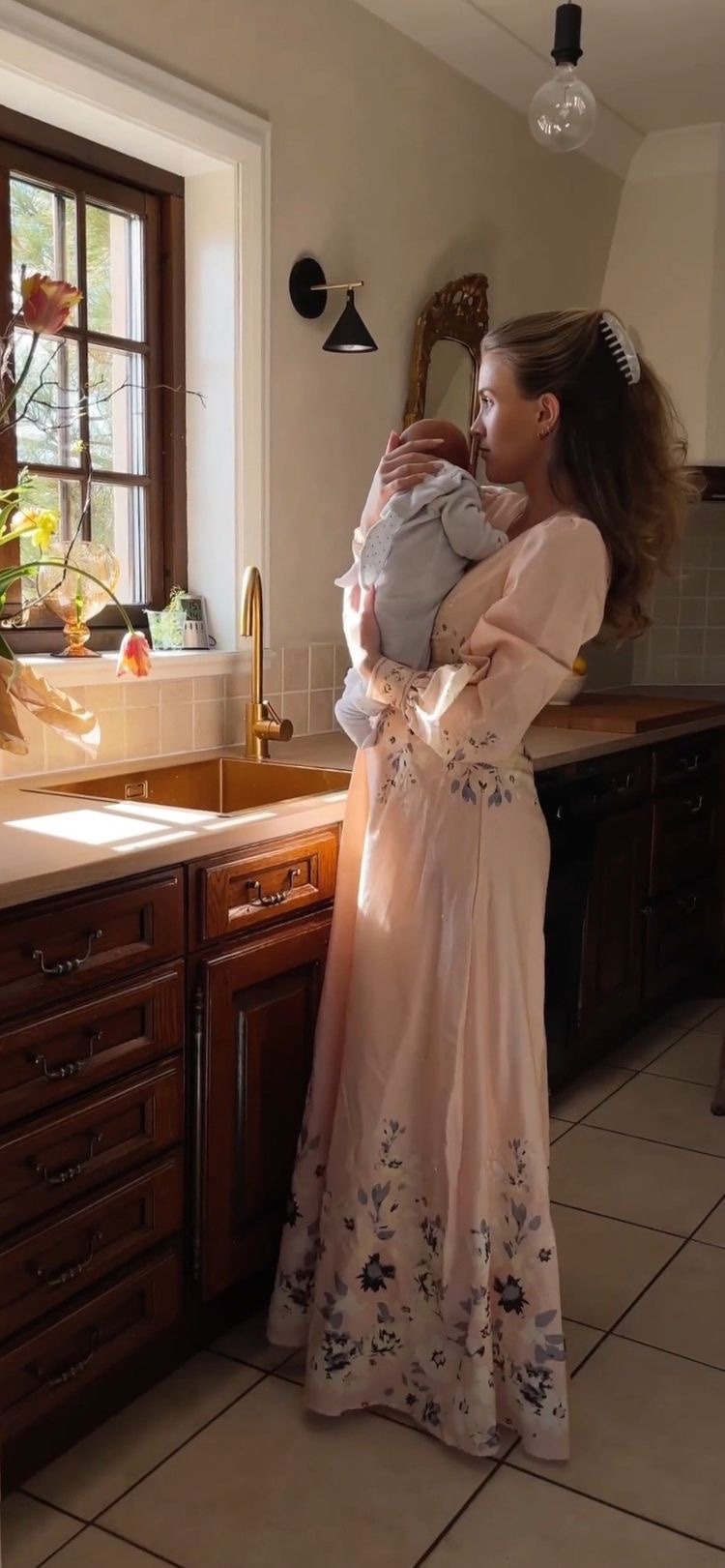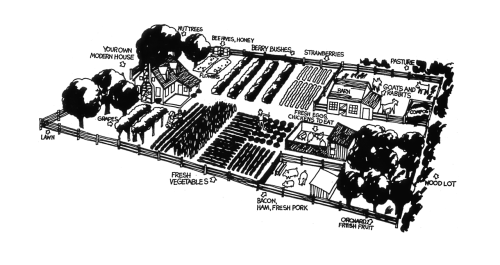Homesteading - Blog Posts
if you need me i am going to be binge-reading the archives of my favorite blog on the entire internet which is written by this sweet old man who lives on a farm in the pacific northwest with his husband and a bunch of animals. there are nice pictures of flowers and ducks and the tone is so gentle and soothing:



like… fuck…. i love everything about this blog…. it’s the one good thing left online
Who wants to be girl best friends and all live on a big plot of land together and raise chickens and bake bread and garden together
There is something so alluring about this. A simpler life. The security and peace of a tradition couple. Home cooking from scratch. Growing your own food and having no commute and no boss. A simple life isn’t taboo, more of us should be living it.


I love how quiet and peaceful the snow makes the woods. Especially with a woodstove to curl up by.
Don’t forget!
Put down your clothes and pick up your gardening supplies.
Connect to nature and grow your food “naturally”.
Snap a few pictures too!

SCREW BIG AGRICULTURE
I fully believe everyone needs to be aware of this, it’s not common knowledge but it’s important.
Running a farm is HARD, and I know not everyone is capable of it, but you can still be supporting small farms especially now, when big agriculture is trying to get control of all of our food supply, which is BAD.
Farmers used to be able to reuse seed year after year, the benefits of this include saving money and it’s not genetically modified and the food is completely fine. However, this is not longer viable because now the new law is that you have to go and buy gmo seeds year after year and plant those and if you don’t do that, an inspector will go around and check and if you don’t have those seeds they will literally sue you and your farm. This makes NO sense. That is also why there’s this huge push right now for going vegan, specifically with soybeans, although your body struggles to break down the ingredients in those foods.
None of this is natural and it’s becoming a huge issue because looking at the food supply you’ll notice that it’s extremely expensive to get anything organic when it literally comes out of the dirt and everything is just becoming more and more genetically modified and we NEED now more than ever to start supporting small farms and co ops and places where it’s accessible to get actually good food because that round up and the gmo processed foods it just stays in your body and it’s not good for us.
Please share, it’s important to bring awareness to the recent laws and how they’re changing and how paying attention to them now can benefit us in the future.
Homesteading tips!
Homesteading is rough and a lot of labour, but there is a lot of rewards that come from it, so here are some tips that can help you start and make it through.
Be realistic. Adapt to your place rather than adapt it to you. Start small and learn what best grows where you are.
Use what you have. Be resourceful. You don’t have to spend thousands or put yourself in debt in order to start. Selling some of what you get - eggs, for example, can help make your home life more sustainable. With that said, it can help to lower initial expense until you start generating a more disposable income - I recommend attempting to save by utilizing cold water rather than hot, taking advantage of solar energy and cutting down on non-necessities such as TV or AC. Look into using a clothesline to save energy and money and you can even make your own soap!
Be patient. When you first start out, it’s not going to look the same it does in your head, and that’s ok! Your hard work will pay off in time. It’s a slow process that requires patience, and this lifestyle is often unpredictable!
START A COMPOST ASAP! You can even begin a compost in an apartment building in your kitchen. Coffee grounds go great in them as well! Familiarize yourself with what can and cannot be composted before starting.
Freeze your eggs and build your own nesting boxes and brooding boxes if you have chickens. A great way to build nesting boxes is cutting up old buckets and filling them! Make sure to predator-proof always.
Speaking of animals, if you plan on keeping goats I recommend an electric fence if you can manage it. Goats need strong fences.
Begin making the most of weeds! You can use nettle to feed animals (and people) and dandelion has many uses as well.
Keep yourself prepared for emergencies like power outages!
Consider making your own drip irrigation system.
Educate yourself on the plants you are keeping and how to look out for plant disease.
Learn how to create and sharpen your own tools!
Learning how to dehydrate food and plants is important for preservation.
Prepare for winter ahead of time!


If there’s one lesson I’ve learned as I enter year four of my foray into farming, it’s that lambs love to be born during the darkest hours of the coldest nights in the most inconvenient way possible. But we still love them, ‘cause they are the sweetest creatures around.
Amazing, helps to reduce the energy problem.

View on Twitter
The German Finance Minister referred to renewable electricity sources as “the energy of freedom.” Better later than never when it comes to reducing dependence on Russian fossil fuels. Germany 🇩🇪 aims to get 100% of energy from renewable sources by 2035:

(Source)
Found this method helps a lot in controlling anxiety and handling stressful situations
Wim Hof Method Step-by-Step
My latest biohacking exploration. I’m not really into the cold resistance part (yet), but the breathing exercises are wonderful. If you’re at all familiar with pranayama this won’t be new to you.
Wim Hof Guided Breathing (3 rounds with onscreen timer)
The silliest part of our modern culture is the belief that one person deserves any more than the other.

Having everything provided to us has made us greedy and weak. Self sustainability will allow us to live naturally and successfully.
Just imagine if we could even get 50% of people to do something like this. Get outside, plant something, reconnect to Earth. Plus you will feel the satisfaction of providing for yourself!

Beautiful photos. Looks like true happiness springing from your work and effort.


















Cracked corn and watermelon buffet for my feathered family members 🌽 🍉 🐓 ♥️
Really excited to get chickens of my own one day!
I wish yours a good year.

Why do my interests in canning, couponing, and homesteading overlap so often with blogs with titles like ‘The Obedient Housewife’?

Start a 1-Acre, Self-Sufficient Homestead
Expert advice on how to establish self-sufficient food production, including guidance on crop rotations, raising livestock and grazing management.
By John Seymour
Illustration by Dorling Kindersley
“…the logic of knowledge as a network, adaptive and not commodified, is the most important beacon to orient ourselves and make sure the future exists. What can we learn from this knowledge? For me the greatest lesson is that quality is the most important and sustainable ting. A territory’s criterion of quality gathers together the ethics of that territory’s community, its notion of what is life, what is justice, what is abundance, and what is wellbeing” (66).
The Solutions Are Already Here by Peter Gelderloos




